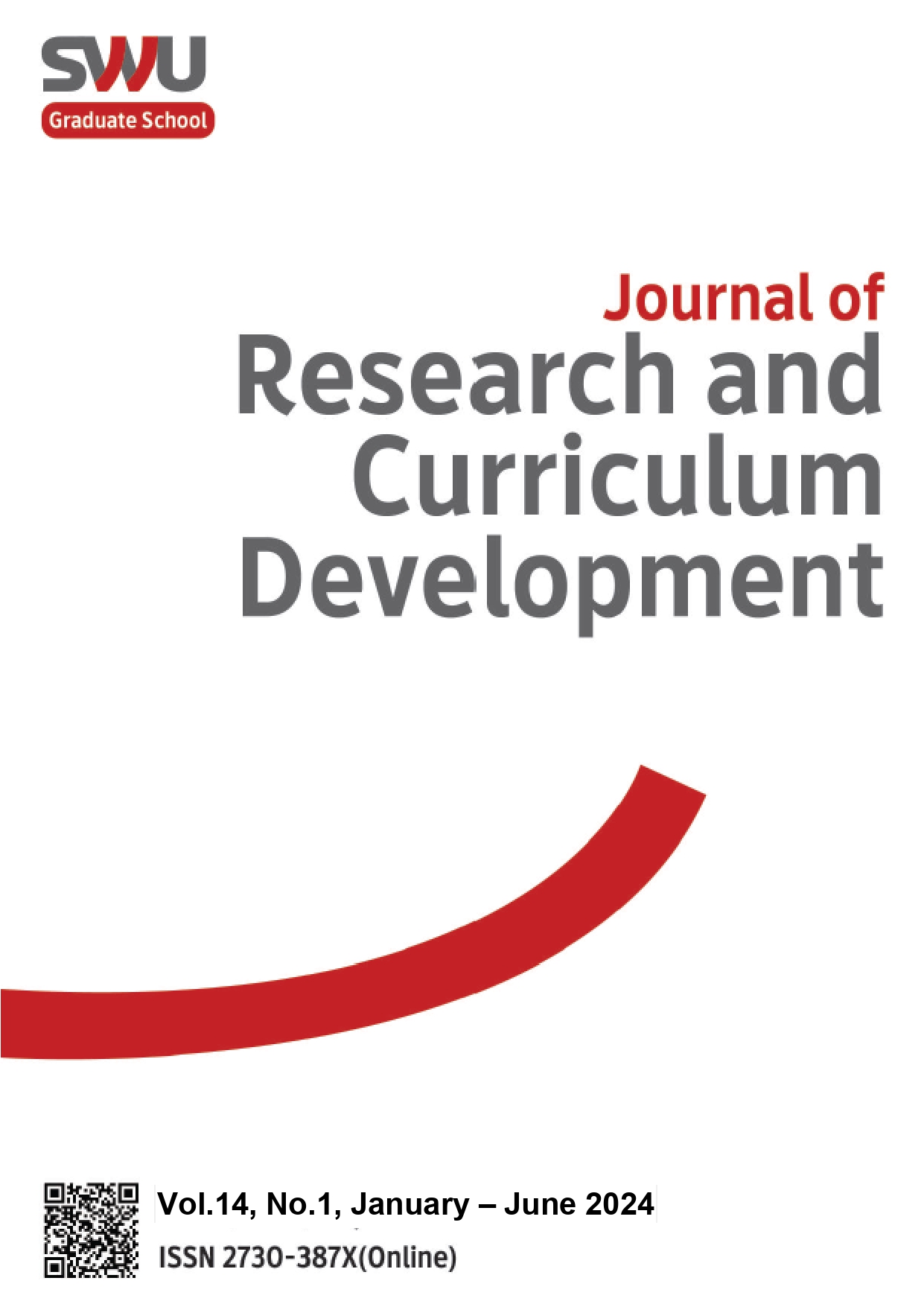Development of an Online Course on Learning Measurement and Evaluation for Primary School Teachers
Keywords:
Online course, Measurement and evaluation, Primary school teacherAbstract
This research aimed: (1) to develop the online course on learning measurement and evaluation; and (2) to evaluate the appropriateness of the online course on learning measurement and evaluation for primary school teachers. The research sample was 12 interviewees and 36 primary teachers under the Nakhon Pathom Primary Educational Service Area, Office Two. The research instruments included an interview form, a knowledge test and a design ability test on learning measurement and evaluation, an attitude test toward learning management and evaluation, and an opinionnaire on the developed online course. The data were analyzed with percentage, mean, standard deviation, t-test, and content analysis. The research results showed that the online course on learning measurement and evaluation was developed based on gamification concepts. The quality of the developed online course was assessed at a good level. After experimenting with the sample, knowledge and ability in design learning measurement and evaluation of teachers were higher compared to before learning with a statistical significance at .05. Moreover, the teachers’ attitude toward learning measurement and evaluation was highly positive, and they opined that the developed online course was appropriate for developing knowledge, abilities, and attitudes of teachers at the highest level both overall and in specific aspects.
References
Abdi, H. (2010). Coefficient of variation. In Encyclopedia of Research Design (p.1-5). Sage.
Aleman, L. Y., Sancho-Vinuesa, T., & Gómez Zermeño, M. G. (2015). Indicators of pedagogical quality for the design of a Massive Open Online Course for teacher training. Universities and Knowledge Society Journal, 12(1), 104-118.
Beers, S. Z. (2011). Teaching 21St century skills. Association for Supervision and Curriculum Development.
Best, J. W. & Kahn, J. V. (2014). Research in education. Pearson.
Licht, A. H., Tasiopoulou, E. & Wastiau, P. (2017). Open book of educational innovation. European Schoolnet.
Loh, J. K. (2009). Teacher modeling: Its impact on an extensive reading program. Reading in a Foreign Language, 21(2), 93-118.
Maxfield, L. (2020). Taking a beat: Feedback timing in the age of online lessons. Journal of Singing Jacksonville, 77(1), 91-94.
Mills, G. E. &, Gay, L. R. (2016). Educational research: Competencies for analysis and applications (7th ed.). Pearson.
Rose, D. H. & Meyer, A. (2002). Teaching every student in the digital age. Association for Supervision and Curriculum Development.
Santrock, J. W. (2018). Educational psychology (6th ed.). McGraw-Hill.
Swacha, J. (2022). Topic evolution in the research on educational gamification. Education Science, 12(640), 1-13.
Ugur, B., Kocadere, S. A., Kibar, P. N. & Bayrak, F. (2021). An open online course to enhance digital competences of teachers. Turkish Online Journal of Distance Education, 20(4), 24-43.
Wallace, D., Juban, R. & Vicknair, J. (2022). Success in the online classroom: Lessons Learned. Journal of Higher Education Theory and Practice, 22(7), 1-6.
Yıldırım, H. İ. & Yıldırım, A. (2022). A study on science teachers' attitude towards measurement and evaluation. Electronic Journal of Social Science, 21(84), 1546-1568.
Downloads
Published
How to Cite
Issue
Section
License

This work is licensed under a Creative Commons Attribution-NonCommercial-NoDerivatives 4.0 International License.


